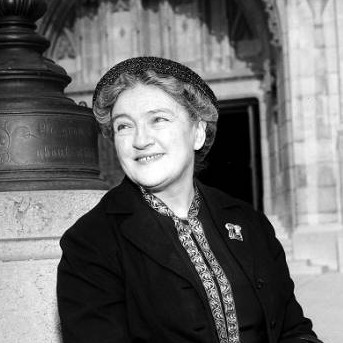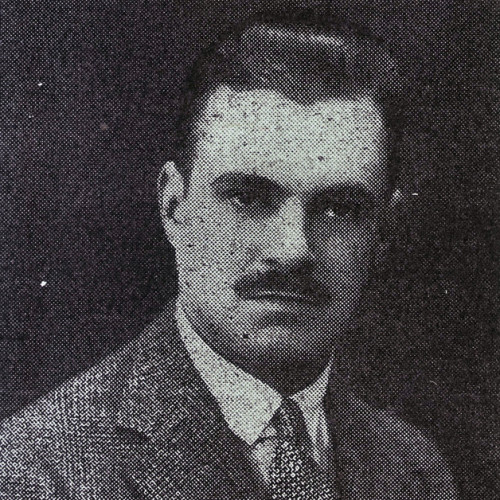Stefan Jan Ryniewicz (1903—1988) - Instytut Pileckiego
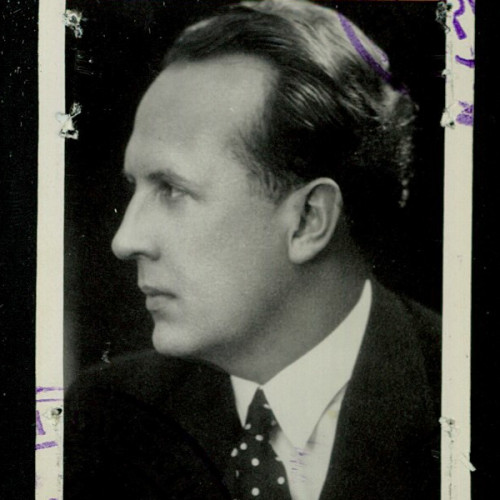
He was the deputy to Aleksander Ładoś. Ryniewicz’s role was to provide diplomatic security to the whole operation.
His diplomatic career began in 1928 at the Polish embassy in Bern (1928 —1933). Next, he was employed in the cabinet of Józef Beck, the minister of foreign affairs. He was the Polish consul in Riga in the years 1935—1938 before
he returned to the embassy in Bern as the First Secretary and from 1943 as an
advisor.
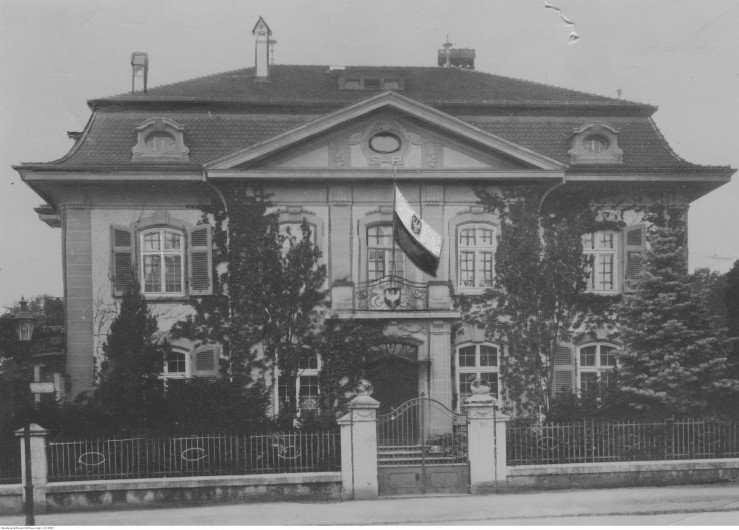
He was the deputy to Aleksander Ładoś and a member of the group which issued illegal Latin American passports to persecuted Jews. Ryniewicz’s role was to provide diplomatic security to the whole operation. He convinced Latin American diplomats to acknowledge the passports and maintained contact with Jewish organizations.
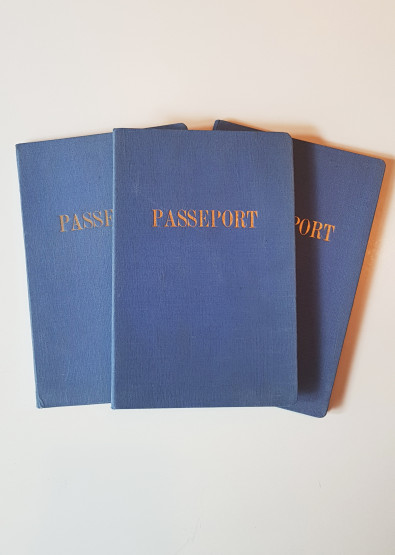
When the Swiss authorities discovered the passport campaign in 1943, he intervened with the head of the Swiss police, helping to keep the operation quiet. He remained in Switzerland after the war and then went to France. From there, he emigrated to Argentina where he ran his own business. He was an active member of the Polish diaspora and was the chairman of the Polish Club. He died in Buenos Aires in 1988.
THE ŁADOŚ GROUP
The Ładoś Group, also called the Bernese Group, comprised Polish diplomats, employees of the Polish embassy in Bern, and representatives of Jewish organizations cooperating with them. The group was led by the Polish embassy’s chargé d’affaires Aleksander Ładoś. In addition to him, three other Polish diplomats at the embassy were also members of the group: Stefan Ryniewicz, Konstanty Rokicki and Juliusz Kühl, as well as two activists from Jewish organizations in Switzerland: Abraham Silberschein and Chaim Eiss.
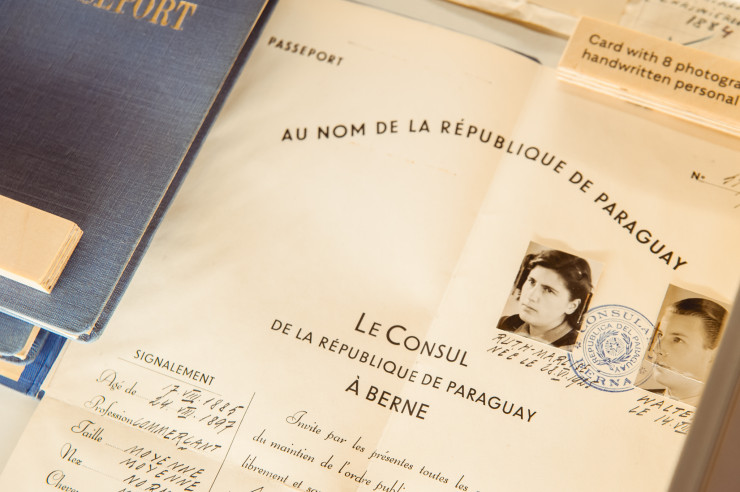
During the Second World War, the group illegally issued Latin American (mainly Paraguayan) passports. The operation was initially intended for Jews in the ghettos of occupied Poland, but over time the passports were sent to other countries such as the Netherlands. Issuing these passports to Jews greatly increased their chances of survival — the documents meant their bearers might be sent for internment instead of extermination. It is estimated that the group issued passports for up to 10,000 people.
fot. Swiss Federal Archives E4264#1988/2#22016*, ref. P059786,
RYNIEWICZ, STEFAN JAN, 26.12.1903, 1945—1956
See also
- Władysława Nagórka z d. Lech (1895—1981)

awarded
Władysława Nagórka z d. Lech (1895—1981)
Antoni and Władysława Nagórka lived at the edge of the town. Before the war, Antoni worked for the railways, and Władysława was a housewife. During the war they saved five Jews from the Holocaust.
- Ecaterina Olimpia Caradja (1893–1993)

awarded
Ecaterina Olimpia Caradja (1893–1993)
“Kurier Polski” published in Bucharest on 3 December 1939 was full of alarming headlines: “The Soviet attack on Finland”, “Executions and deportations.” One of them gave people hope: “Under the care of Princess Caragea. Home for mothers and chilldren.”
- Konstanty Rokicki (1899—1958)

awarded
Konstanty Rokicki (1899—1958)
Rokicki was responsible for one of the Ładoś Group’s most important tasks. In the years 1941—1944 he alone hand-wrote several thousand Paraguayan passports.

